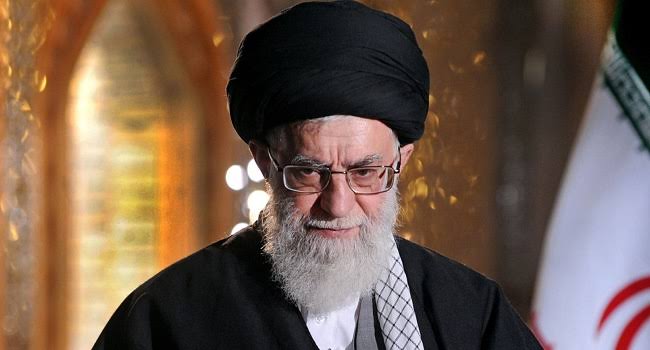Iran’s Supreme Leader, Ayatollah Ali Khamenei, has been whisked away to a secure location, as reported by sources to Reuters. This dramatic development comes just a day after a significant Israeli strike in Beirut resulted in the death of Hezbollah’s chief, Hassan Nasrallah, a key ally to Tehran. One has to wonder: when the leader of the Islamic Republic has to hide, is it really still the “Islamic Republic” we once knew, or just a frightened regime trying to protect its own?
The strikes, which killed not only Nasrallah but also Abbas Nilforoushan, deputy commander of the elite Revolutionary Guards Corps, have sent ripples through Iran’s political and military ranks. The Iranian leadership seems to be grappling with a level of anxiety typically reserved for harrased regimes. Khamenei’s retreat into hiding reflects a sense of vulnerability, one that seems foreign to a nation that prides itself on its revolutionary bravado.

Iran’s Revolutionary Guards have now prohibited their members from using communication devices after an alarming series of explosions took out pagers and walkie-talkies used by Hezbollah. Are we to believe that the Iranian military has fallen victim to its own technology? Meanwhile, Lebanon’s officials have quickly pointed fingers at Israel, which neither confirmed nor denied involvement, suggesting a game of blame that has become all too familiar in this region.
In the wake of Nasrallah’s killing, Khamenei has vowed revenge, declaring that “the blood of the martyr shall not go unavenged.” He announced a five-day period of mourning, further emphasizing the deep ramifications of this loss for Iran and its regional ambitions. Nasrallah was not just a leader; he was a symbol of Iran’s influence in Lebanon and a critical architect of Hezbollah’s military capabilities. His demise poses a serious question for Tehran: who will fill the leadership void?
With the so-called “Axis of Resistance” now seemingly at a crossroads, Iran’s network of allies—from Hezbollah in Lebanon to Hamas in Gaza and militia groups in Iraq finds itself vulnerable and exposed. The ongoing war between Hamas and Israel, which erupted almost a year ago, has further complicated matters, leading to cross-border skirmishes involving Hezbollah that show no signs of abating.
President Masoud Pezeshkian has not shied away from claiming that the United States bears some responsibility for Nasrallah’s death. He argued that U.S. support of Israel makes it complicit in the ongoing violence.

















